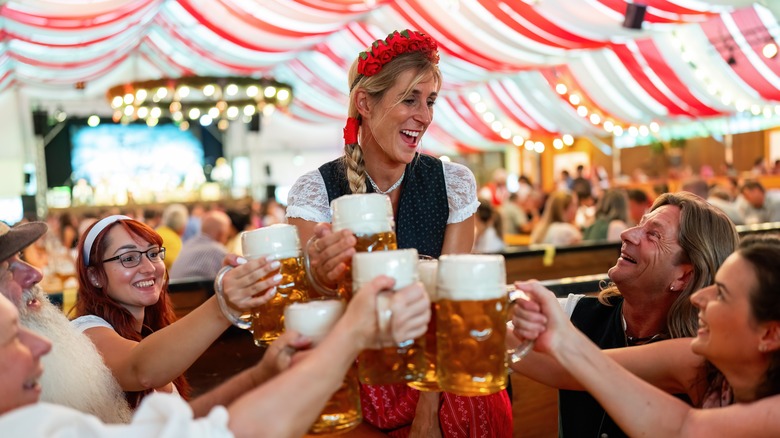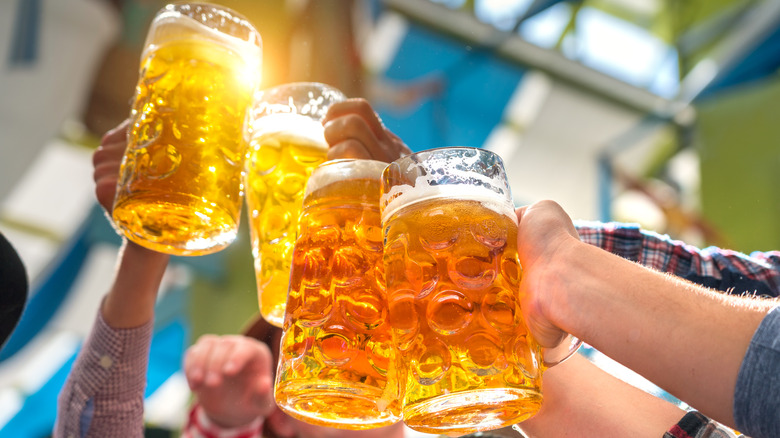The Original Oktoberfest Didn't Even Have Beer Tents
Oktoberfest is the world's largest folk festival and an unforgettable event featuring entertainment, celebration, and beer. But how did this massive festival come to be? In 1810, an officer of the Bavarian National Guard had the idea that the wedding of Prince Regent Ludwig of Bavaria and Princess Therese should be celebrated with a horse race. The king of Bavaria loved this idea and made it happen.
While the wedding was held on October 12 that year, the celebration continued until October 17 ... without any beer tents. The festival eventually became an annual, city-funded event in 1819 and, over time, solidified itself as an institution. Despite the challenges of war and disease that have halted or delayed Oktoberfest celebrations over the last two centuries, the event continues to be a cultural cornerstone.
By the late 19th century, it began to transform into how it is celebrated today. Carousels and performers became regular features of the festival, and the initially small beer stands transitioned into the larger beer tents that attendees now know and love. The details of the festival's origins may be some of the historical things you didn't know about Oktoberfest.
The magic of Oktoberfest tents
The days-long nuptials of 1810 were held on a meadow outside of Munich named after the bride: Theresens-Wiese. Oktoberfest is still celebrated at that location, now known as the Theresienwiese, which takes up 42 hectares (around 103 football fields) of space. Millions of people gather to find adventure between the tents of Oktoberfest and enjoy the festivities that have led people to recognize Munich's Oktoberfest as Beer-Sneyland.
With around six million attendees every year, planning for Oktoberfest requires attention to detail and a dedicated workforce to make the festival happen. The larger tents are constructed before moving on to the medium and small tents. Oktoberfest would not be one of the most unique food festivals around the world if it were all about beer; in addition to beer, the festival's tents are also essential hubs for food and music.

